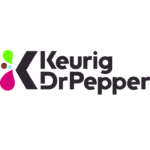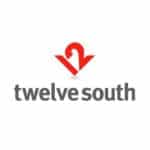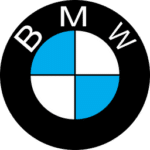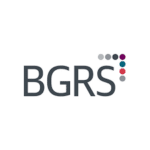German A1
Beginner German
You've got Options

Private Classes
Meet one or more times weekly with a dedicated German instructor online or in person at a pace and schedule that fits your busy life.

Group Courses
Our 10 week group German courses meet twice a week for 1-hour classes. Learn German with other motivated students. Best option for German CEFR certification.

Self-Study
Do you like to study on your own when it's convenient for you? Buy helpful charts, vocabulary lists, and courses. CEFR standardized curriculum available.
Regardless of whether you are interested in private classes or group courses, or whether you come to us as a complete beginner or advanced learner, we will keep you on track using the following CEFR level standards. Dive into each level to learn about topics that will be covered at each level. German B2 and higher cover customized topics built around our clients and students’ goals and industries.
Learn about German A1 Topics
CORE Languages follows the CEFR standard for teaching foreign languages. That means we are required to teach specific topics in each level. In order to make learning more manageable, we have broken each level down into 4 short courses.
GEFR Level: German A1.1
- Level 1-1 is a course designed for beginners, someone who has had no previous experience with German. It covers basic vocabulary, verbs in the present tense and the German sentence structure. The activities in Level 1 focus on giving basic information about yourself, understanding numbers and how to tell the time.
- Level 1-2 continues to focus on the present tense, adding separable and irregular verbs. It also looks at the past tenses of haben and sein as well as accusative objects. Conversational topics of this level include shopping for groceries, the daily routine and family.
After completing these levels, you’ll be able to:
understand and use familiar everyday expressions and very basic phrases aimed at the satisfaction of needs of a concrete type.
introduce yourself and others and ask and answer questions about personal details such as where they live, people they know and things they have.
interact in a simple way provided the other person talks slowly and clearly and is prepared to help.
CEFR Level: German A1.2
- Level 1-3 focuses on the German imperative forms and the first introduction to the Perfekt tense as well as modal verbs. Students will learn about tourism in Berlin and understanding as well as actively giving directions. Another topic is finding an apartment and understanding classified ads with their typical abbreviations.
- Level 1-4 completes the Perfekt tense, adding irregular verbs and the Perfekt tense with sein. We complete the modal verbs and use them in contexts such as health and professional life. This level also deals with reading and writing e-mails in the present and past tense, and making private and business-related phone calls..
After completing these levels you’ll be able to:
understand and use familiar everyday expressions and very basic phrases aimed at the satisfaction of needs of a concrete type.
introduce yourself and others and ask and answer questions about personal details such as where they live, people they know and things they have.
interact in a simple way provided the other person talks slowly and clearly and is prepared to help.
Compass Blog
We add weekly content regarding everything German here. Make sure to subscribe!
Get Updates And Stay Connected
Subscribe To Our Newsletter
Recommended by an International Community
Discover All German CEFR Level Topics
Regardless of whether you are interested in private classes or group courses, or whether you come to us as a complete beginner or advanced learner, we will keep you on track using the following CEFR level standards. Dive into each level to learn about topics that will be covered at each level. German B2 and higher cover customized topics built around our clients and students’ goals and industries.
Don’t know your German level? Take our German Placement Test.
Learn basic German with a fun and interactive German A1 course for beginners. Get prepared for your A1 German language certificate exams.
Content covered in German A1 will help learners understand and use familiar, everyday expressions and very simple sentences, which relate to communicating basic needs. Learners can introduce him/herself and others as well as ask others about themselves – e.g. where they live, who they know and what they own – and can respond to questions of this nature. Can communicate in a simple manner if the person they are speaking to speaks slowly and clearly and is willing to help. Learn more about German A1
Whether you’re looking to learn German to relocate, for work, or just for fun, it can feel daunting knowing where to start. At CORE Languages our teachers will guide you with immersive learning to help guide you along the way.
Content covered in German A2 will help learners understand sentences and commonly used expressions associated with topics directly related to his/her direct circumstances (e.g. personal information or information about his/her family, shopping, work, immediate surroundings). Learners can make him/herself understood in simple, routine situations dealing with a simple and direct exchange of information on familiar and common topics. Can describe his/her background and education, immediate surroundings and other things associated with immediate needs in a simple way. Learn more about German A2
The world moves quickly nowadays, and sometimes it can feel like there aren’t enough hours in the day, so the idea of taking a German course can feel daunting. What if we told you that you can opt for a German B1 online course that’s completely flexible and you’re in charge?
Content covered in German B1 will help learners understand the main points when clear, standard language is used and the focus is on familiar topics associated with work, school, leisure time, etc. Learners can deal with most situations typically encountered when travelling in the language region. Learners can express him/herself simply and coherently regarding familiar topics and areas of personal interest. Learners can report on experiences and events, describe dreams, hopes and goals as well as make short statements to justify or explain his/her own views and plans. Learn more about German B1
By the end of this course, you’ll be able to understand complex texts, spontaneously interact with native speakers with relative ease, produce detailed texts on a wide range of subjects and write and explain your viewpoints. When you learn with CORE Languages we’ll challenge you with comprehensive reading, writing and listening exercises to match your interests, all the while our native-level teacher will be there to give you personalized feedback in real-time. Learn more about German B2
Start a German Group Course at Work
Find out how businesses implement our training courses to help their employees succeed with client exclusive training options.























